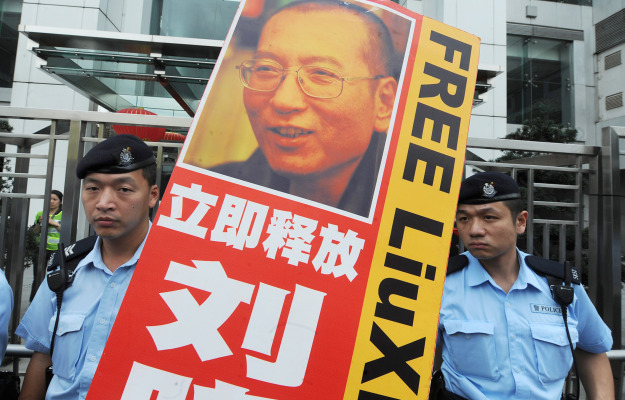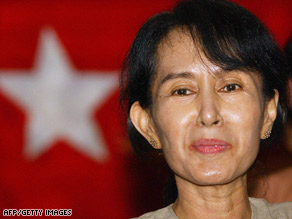 432 pages report covers the period from January to December 2010, includes regional overviews and country reviews. Iconic moments in 2010, Amnesty International says, included Daw Aung San Suu Kyi’s release in Burma and the award of the Nobel Peace Prize to Chinese dissident Liu Xiaobo despite his government’s attempts to sabotage the ceremony.
432 pages report covers the period from January to December 2010, includes regional overviews and country reviews. Iconic moments in 2010, Amnesty International says, included Daw Aung San Suu Kyi’s release in Burma and the award of the Nobel Peace Prize to Chinese dissident Liu Xiaobo despite his government’s attempts to sabotage the ceremony.
Human rights behind headlines
Away from the international headlines, thousands of human rights defenders were threatened, imprisoned, tortured and killed, including in Afghanistan, Angola, Brazil, Burma, China, Mexico, Russia, Turkey, Uzbekistan, Viet Nam and Zimbabwe.
These activists were often speaking out on human rights issues including poverty, the marginalization of whole communities, women’s rights, corruption, brutality and oppression. Events in all regions highlighted their crucial role, and the need for global solidarity with them.
Amnesty International’s annual report also highlights:
– Deteriorating country situations including a grim picture for activists in Ukraine, Belarus and Kyrgyzstan; spiralling violence in Nigeria; and an escalating crisis posed by Maoist armed insurgencies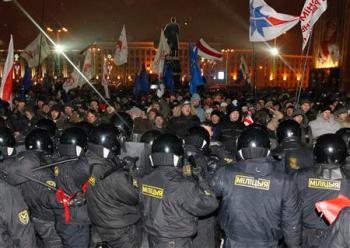 in central and north-east India.
in central and north-east India.
– Regional trends including growing threats to Indigenous Peoples in the Americas; a worsening legal situation for women who choose to wear a full-face veil in Europe; and a growing willingness by European states to send people back to places where they risk persecution.
– Conflicts that have wreaked havoc in the Central African Republic, Chad, Colombia, the Democratic Republic of Congo, Iraq, Israel and the Occupied Palestinian Territories, Russia’s North Caucasus, Sri Lanka, Sudan and Somalia, with civilians often targeted by armed groups and government forces.
– Signs of progress, including the steady retreat of the death penalty; some improvements in maternal healthcare including in Indonesia and Sierra Leone; and the bringing to justice of some of those responsible for human rights crimes under past military regimes in Latin America.
Middle East – change on a knife-edge
“Every year, for several decades, Amnesty’s annual reports told stories about the repression and violations of regimes like Yemen, Tunisia, Egypt and Libya. It is therefore very special that just on the eve of its 50th anniversary we are in the midst of a human rights revolution that may lead to a historic change in these regimes, which may have resonated throughout the world, from Azerbaijan to China and Zimbabwe,” said Secretary General of Amnesty International in Norway John Peder Egenæs.
The report says that growing demands for freedom and justice across the Middle East and North Africa and the rise of social media offer an unprecedented opportunity for human rights change – but this change stands on a knife-edge.
Social media’s role
In a way the world has never experienced before, social media paved the way for the chance to claim an end to repression and corruption. The fight for human rights is now both in the streets and on the digital battlefield.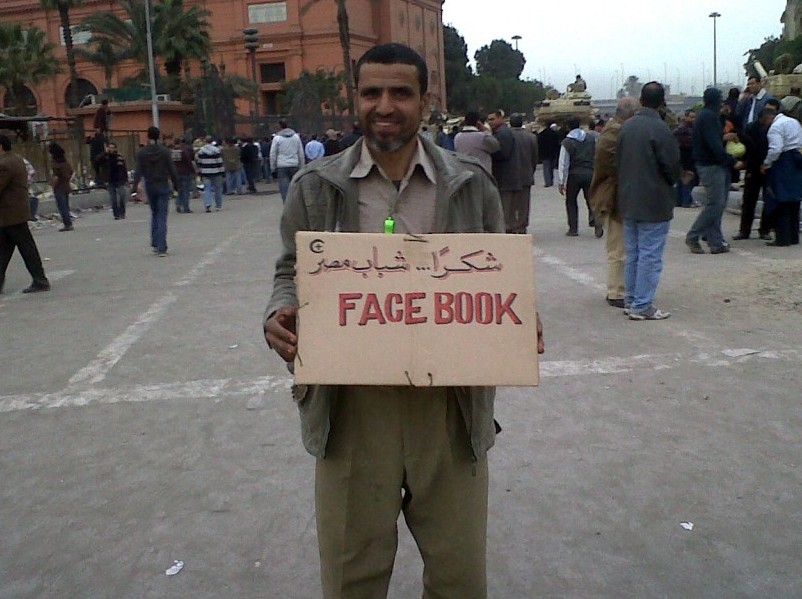
A critical battle is underway for control of access to information, means of communication and networking technology as social media networks fuel a new activism that governments are struggling to control.
As seen in Tunisia and Egypt, government attempts to block internet access or cut mobile phone networks can backfire – but governments are scrambling to regain the initiative or to use this technology against activists.
The protests that have spread across the Middle East and North Africa as people demand an end to repression and corruption are highlighting their deep desire for freedom from fear and want, and are giving voice to the voiceless.
People are rejecting fear
“People are rejecting fear. Courageous people, led largely by youth, are standing up and speaking out in the face of bullets, beatings, tear gas and tanks. This bravery – combined with new technology that is helping activists to outflank and expose government suppression of free speech and peaceful protest – is sending a signal to repressive governments that their days are numbered,” said Salil Shetty, Amnesty International Secretary General.
The protests that have spread across the Middle East and North Africa as people demand an end to repression and corruption are highlighting their deep desire for freedom from fear and want, and are giving voice to the voiceless.
In Tunisia and Egypt, success in dethroning dictators riveted the world. Now there are whispers of di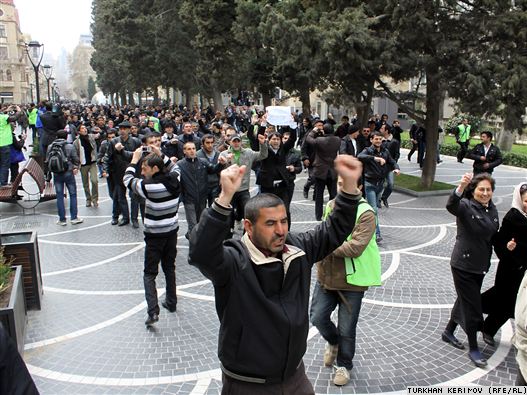 scontent being heard from Azerbaijan to Zimbabwe.
scontent being heard from Azerbaijan to Zimbabwe.
Yet despite a new resolve to confront tyranny and despite the theatre of struggle for human rights reaching a new digital frontier, freedom of expression – a right vital for its own sake and for claiming other rights – is under attack across the world.
Governments in Libya, Syria, Bahrain and Yemen have shown a willingness to beat, maim or kill peaceful protesters to stay in power. Even where dictators have fallen, the institutions that supported them still need to be dismantled and the work of activists is far from over. Repressive governments such as Azerbaijan, China and Iran are trying to pre-empt any similar revolutions in their countries.
Time has changed – a new era has come
Salil Shetty said that powerful governments, which have underestimated the burning desire of people everywhere for freedom and justice, must now back reform rather than sliding back into cynical political support for repression.
The true tests of these governments’ integrity will be to support the rebuilding of states that promote human rights but that may not be allies, and their willingness – as with Libya – to refer the worst perpetrators to the International Criminal Court when all other justice avenues f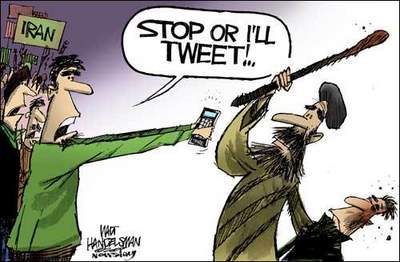 ail.
ail.
The need for a consistent policy of zero-tolerance for crimes against humanity by the UN Security Council has been underlined by the brutal crackdown in Syria that has left hundreds dead since March, and by the lack of any concerted action in response to the repression of peaceful protests in Yemen and Bahrain.
Reforms instead of repressions
Governments in the Middle East and North Africa must have the courage to allow reform in a rapidly changing human rights landscape. They should uphold the rights to peaceful expression and association and ensure equality for all, in particular by dismantling obstacles to women’s full participation in society.
Secret police and security forces should be reined in, brutality and killings stopped and full accountability for abuses ensured, so that victims get the justice and reparation that have for so long proved elusive.
Corporations that provide internet access, cellular communications and social networking sites and that support digital media and communications need to respect human rights. They must not become the pawns or accomplices of repressive governments who want to stifle expression and spy on their people.
communications need to respect human rights. They must not become the pawns or accomplices of repressive governments who want to stifle expression and spy on their people.
“Not since the end of the Cold War have so many repressive governments faced such a challenge to their stranglehold on power. The demand for political and economic rights spreading across the Middle East and North Africa is dramatic proof that all rights are equally important and a universal demand,” said Salil Shetty.
Find the full text of report here.
Related articles:
Creative tools of online oppressors
No frontiers, new barriers – free speech and attempts to stop it
Threats to internet freedom – political censorship and government control over infrastructure


